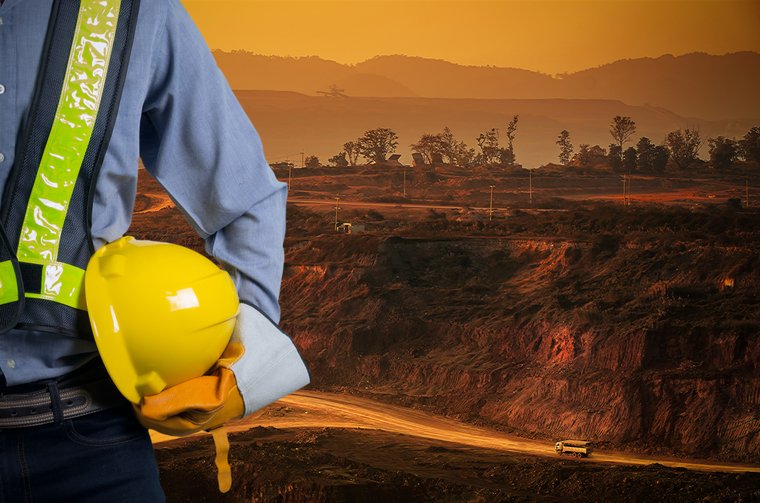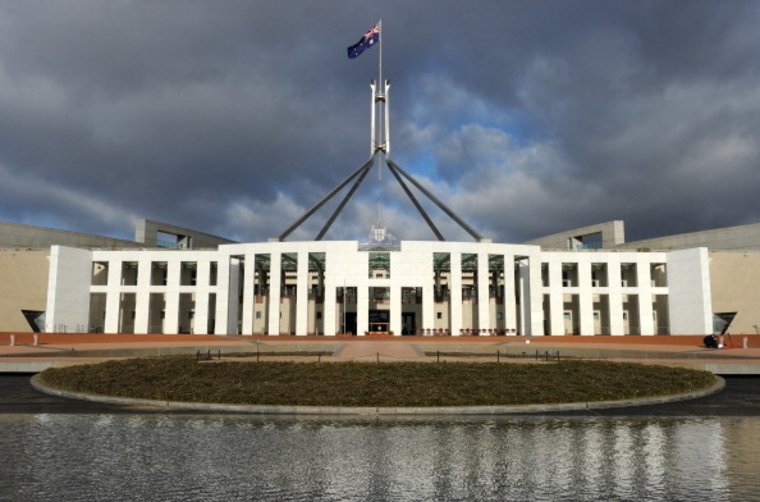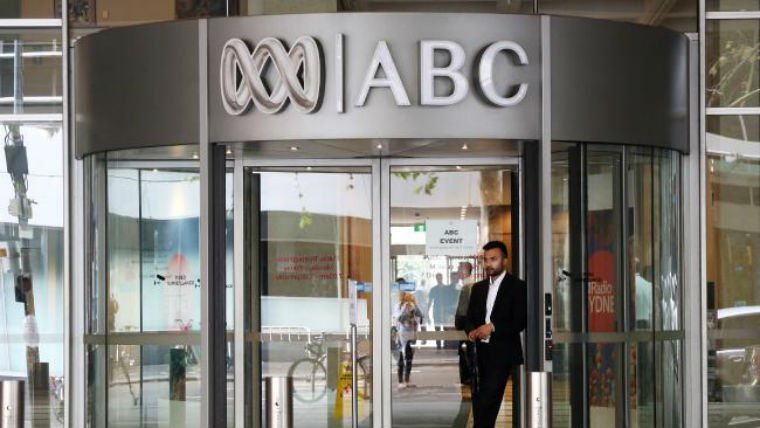"Justice is the end [goal] of government. It is the end of civil society," argued James Madison, one of the Founding Fathers and the fourth president of the United States, in the Federalist No. 51. Writing in the year that the First Fleet of British ships arrived at Sydney, Madison understood that citizens need to believe in the fundamental justness of a political regime for it to survive the test of time.
 This is why it is short-sighted to dismiss as juvenile the tearing down of statues, cancelling of old movies and removal of products from shelves deemed offensive.
This is why it is short-sighted to dismiss as juvenile the tearing down of statues, cancelling of old movies and removal of products from shelves deemed offensive.
These actions are a part of a broader conception of justice based on identity politics, which holds that the primary moral unit and therefore that which is of most relevance to justice and politics is group identity. What matters is not the content of one's character, but what biological, racial, or gender tribe one belongs to.
The identity politics view of justice is incompatible with the traditional Western notion of justice which is based on the inherent dignity and equality of all individuals, from which notions such as equality before the law and the rule of law are derived.
These two competing conceptions of justice were on display in the recent Black Lives Matter protests.
Mainstream Australians who had been patiently and diligently obeying social distancing rules were exasperated that apparently an entirely different set of rules applied to the protesters. But what actually happened was that two entirely different regimes were operating side by side: the mainstream regime based on the equal application of the law and the identity politics regime based on grievance, victimhood and claimed racial injustice.
Worse, the elites either actively encouraged the protests which were attended by at least four federal Labor MPs and one Greens MP, or they permitted them to take place without consequence. The argument that it was too difficult to enforce the law given the number of protestors was clearly a nonsense. State and federal governments have shut down roughly 80 per cent of economic and social life since mid-March. If they wanted to enforce the law, they could have.
The protests are just the latest example of a failure of the elites to take the side of mainstream Australians.
The principal institutions of cultural influence in Australia have for decades relentlessly foisted onto us the divisive framework of identity politics. It permeates the editorials of the ABC, tutorial rooms of universities, board reports of major corporations, pre-game rituals of major sporting codes, memos written by public servants and reports authored by taxpayer-funded bodies such as the Australian Human Rights Commission.
From the boardroom to the classroom and everywhere in between, mainstream Australians are consistently berated as racist, xenophobic, homophobic, transphobic climate deniers.
The reason why Labor, the Greens, and GetUp! campaign against any cut, or even a temporary freeze, to ABC funding is they know the ABC is the chief mouthpiece for identity politics. This is why GetUp! worked hand in glove with Labor to make ABC funding a central issue at the recent Eden-Monaro by-election.
Winston, the protagonist in George Orwell's 1984, remarked that under Big Brother the past has been "abolished … every record has been destroyed or falsified, every book has been rewritten, every picture has been repainted, every statue and street building has been renamed." Regime congruence demands that the past must be brought into line with the present.
If Australia is irredeemably and structurally racist, as the identitarian Left contends, then justice demands it be deconstructed and re-written so that the British brought to Australia not liberty, democracy and equality, but violence, racism, and slavery. This is why statues must be toppled, rather than more being added, and history books re-written, rather than to simply have more discussion of our history. The point is not to debate, but to alienate mainstream Australians from their own country.
A sign of things to come is the New York Times' 1619 Project, whose objective it is to reframe American history, "understanding 1619 as our true founding and placing the consequences of slavery and the contributions of black Americans at the very centre of the story we tell ourselves about who we are." The project argues modern America was not founded in 1776 but in 1619 when African slaves were first brought to the British colonies of North America. The point being that America was founded on slavery not liberty. A school curriculum with content based on the 1619 Project has to date been adopted in more than 3,500 classrooms in all 50 states across America.
If this is not a culture war, then nothing is.
Fortunately, mainstream Australians have proven remarkably resilient to the division encouraged by the elites. According to polling undertaken in 2019 and 2020, 71 per cent of Australians believe Australia has a history to be proud of, 88 per cent are proud to be Australian, and 92 per cent believe freedom of speech is an important Australian value.
This polling reflects a reality that there is more that unites than divides us as a country.
Two nurses or mechanics living in Dandenong, Penrith, Longreach, or Elizabeth of different racial backgrounds have far more in common than they do not. Most likely they own a home and are raising their own family or they aspire to, they work hard and want a better life for themselves and their family, they are honest, dutifully pay their taxes and follow the law, they take people as they are, and if they don't themselves work in a small business one of their neighbours does.
The central debate today is a regime-level one about what it means to be an Australian, with mainstream Australian values on one side and identity politics on the other. But a house divided cannot stand, and only one vision of justice for Australia will prevail.
 The 2013 article resurfaced in November 2019 and was shared around social media by many Australians in the wake of opportunistic alarmism from the green politicians and left wing media that the bushfires at the time were the result of climate change. But on November 12, it was inexplicably taken down from the SBS website.
The 2013 article resurfaced in November 2019 and was shared around social media by many Australians in the wake of opportunistic alarmism from the green politicians and left wing media that the bushfires at the time were the result of climate change. But on November 12, it was inexplicably taken down from the SBS website. Cranston discussed the opinions of prominent current and former advisers to government about what was required to improve the country's economic performance. One of the people whose views Cranston referred to was Bernie Fraser.
Cranston discussed the opinions of prominent current and former advisers to government about what was required to improve the country's economic performance. One of the people whose views Cranston referred to was Bernie Fraser. The Ridd case is much more than a mere workplace relations dispute between an academic and his employer. It is even bigger than a dispute about climate change.
The Ridd case is much more than a mere workplace relations dispute between an academic and his employer. It is even bigger than a dispute about climate change. Alarmingly, this decision shows that contractual provisions guaranteeing intellectual freedom do not protect academics against censorship by university administrators. The time has come for the Morrison Government to intervene.
Alarmingly, this decision shows that contractual provisions guaranteeing intellectual freedom do not protect academics against censorship by university administrators. The time has come for the Morrison Government to intervene. Ciccone called for an overhaul of state and federal environmental laws to create more blue-collar jobs, and for limitations on legal injunctions — commonly referred to as "lawfare" — launched by activist green groups.
Ciccone called for an overhaul of state and federal environmental laws to create more blue-collar jobs, and for limitations on legal injunctions — commonly referred to as "lawfare" — launched by activist green groups. Parliament is the only way for these debates to be had and decisions to be adequately scrutinised.
Parliament is the only way for these debates to be had and decisions to be adequately scrutinised. This is why it is short-sighted to dismiss as juvenile the tearing down of statues, cancelling of old movies and removal of products from shelves deemed offensive.
This is why it is short-sighted to dismiss as juvenile the tearing down of statues, cancelling of old movies and removal of products from shelves deemed offensive. A survey commissioned by the Council of Small Business Organisations of Australia revealed a third of sole traders have been hit with an 80% decline in turnover, while three in four small businesses have experienced a decline in revenue since the beginning of the lockdown restrictions.
A survey commissioned by the Council of Small Business Organisations of Australia revealed a third of sole traders have been hit with an 80% decline in turnover, while three in four small businesses have experienced a decline in revenue since the beginning of the lockdown restrictions. And even with that, there would be no guarantee of success. An elimination strategy would also break from the goal broadly adopted by the Morrison government and National Cabinet, which is suppression. But suppression and elimination are hugely different strategies, with vastly different practical consequences.
And even with that, there would be no guarantee of success. An elimination strategy would also break from the goal broadly adopted by the Morrison government and National Cabinet, which is suppression. But suppression and elimination are hugely different strategies, with vastly different practical consequences. The correspondence, now made public, between Sir John Kerr and Buckingham Palace reveals very little that's new or interesting, other than that
The correspondence, now made public, between Sir John Kerr and Buckingham Palace reveals very little that's new or interesting, other than that  In June in the AFL and the NRL, following the restart of their coronavirus-delayed seasons, players from all clubs participated in ritualistic pre-game kneeling in support of the international political movement, Black Lives Matter. This was carried out with the express approval of the AFL and the NRL administrators and the club officials and egged on by a sympathetic media.
In June in the AFL and the NRL, following the restart of their coronavirus-delayed seasons, players from all clubs participated in ritualistic pre-game kneeling in support of the international political movement, Black Lives Matter. This was carried out with the express approval of the AFL and the NRL administrators and the club officials and egged on by a sympathetic media. However, the Liberal Member for Hughes, Craig Kelly, has visited the Australian National Archive at Chester Hill in western Sydney to view very old meteorological observation books. It has taken Kelly some months to track down this historical evidence. Through access to the archived book for the weather station at Brewarrina, which is the nearest official weather station to Bourke, it can now be confirmed that a temperature of 123°F (50.6°C) was recorded at Brewarrina for January 3 1909. This totally contradicts claims from the Australian Bureau of Meteorology that only Bourke recorded an extraordinarily hot temperature on that day.
However, the Liberal Member for Hughes, Craig Kelly, has visited the Australian National Archive at Chester Hill in western Sydney to view very old meteorological observation books. It has taken Kelly some months to track down this historical evidence. Through access to the archived book for the weather station at Brewarrina, which is the nearest official weather station to Bourke, it can now be confirmed that a temperature of 123°F (50.6°C) was recorded at Brewarrina for January 3 1909. This totally contradicts claims from the Australian Bureau of Meteorology that only Bourke recorded an extraordinarily hot temperature on that day.



 The re-introduction of Stage 3 lockdowns in Victoria should be of concern to all Australians. Not only has the Victorian Labor government completely botched the handling of the COVID-19 lockdown, but it has mismanaged the state's finances for years on fantastically expensive infrastructure programs.
The re-introduction of Stage 3 lockdowns in Victoria should be of concern to all Australians. Not only has the Victorian Labor government completely botched the handling of the COVID-19 lockdown, but it has mismanaged the state's finances for years on fantastically expensive infrastructure programs. By complaining the way it has about the Coalition government's failure to index increases in its funding over the next three years, the ABC has succeeded in making the case for its eventual privatisation more powerfully than could ever have been made by its critics.
By complaining the way it has about the Coalition government's failure to index increases in its funding over the next three years, the ABC has succeeded in making the case for its eventual privatisation more powerfully than could ever have been made by its critics. Other than having the host's position filled by Virginia Trioli, this week's Q&A was entirely ordinary, with five panellists on the left, a host (also on the left) and the Minister for Communications and Arts, Paul Fletcher, in the hot seat.
Other than having the host's position filled by Virginia Trioli, this week's Q&A was entirely ordinary, with five panellists on the left, a host (also on the left) and the Minister for Communications and Arts, Paul Fletcher, in the hot seat. Three years ago, when some delinquents decided to daube the statue of Captain Cook in Sydney's Hyde Park with the words "No pride in genocide" and "Change the date", I went to Ballarat and made a short, slightly tongue-in-cheek film entitled A Politically Correct Walking Tour of Ballarat based on the aforementioned brochure.
Three years ago, when some delinquents decided to daube the statue of Captain Cook in Sydney's Hyde Park with the words "No pride in genocide" and "Change the date", I went to Ballarat and made a short, slightly tongue-in-cheek film entitled A Politically Correct Walking Tour of Ballarat based on the aforementioned brochure.